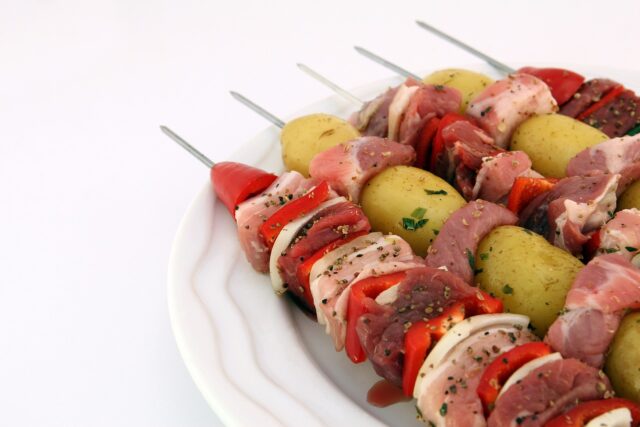
Introduction
High cholesterol levels can significantly increase the risk of heart disease and other health issues. While medication can help manage cholesterol levels, making dietary changes is equally important. By avoiding certain foods that are high in cholesterol and unhealthy fats, you can take control of your cholesterol levels and improve your overall heart health. In this article, we will discuss the top 10 foods to avoid for high cholesterol.
1. Trans Fats
Trans fats are artificially created fats that are commonly found in processed foods, such as fried foods, baked goods, and margarine. These fats not only raise bad cholesterol (LDL) levels but also lower good cholesterol (HDL) levels. To reduce your intake of trans fats, read food labels carefully and avoid products that contain partially hydrogenated oils.
2. Saturated Fats
Saturated fats are primarily found in animal products like fatty meats, full-fat dairy products, and butter. These fats can raise LDL cholesterol levels and increase the risk of heart disease. Opt for lean cuts of meat, low-fat dairy alternatives, and healthier cooking oils like olive oil or avocado oil.
3. Fried Foods
Fried foods, such as French fries, fried chicken, and onion rings, are typically cooked in unhealthy oils that are high in trans fats and saturated fats. These foods not only contribute to high cholesterol levels but are also linked to weight gain and other health problems. Instead, try baking, grilling, or steaming your favorite foods for a healthier alternative.
4. Processed Meats
Processed meats like sausages, hot dogs, and bacon are often high in saturated fats and cholesterol. They also tend to contain added preservatives and sodium, which can negatively impact heart health. Consider swapping processed meats for leaner protein sources like skinless poultry, fish, or plant-based alternatives.
5. Full-Fat Dairy Products
Full-fat dairy products like whole milk, cheese, and cream can be high in saturated fats. These fats can raise LDL cholesterol levels and contribute to the development of heart disease. Opt for low-fat or fat-free versions of dairy products or try alternatives like almond milk or soy milk.
6. Shellfish
While shellfish can be a good source of lean protein, some varieties like shrimp and lobster are high in cholesterol. If you have high cholesterol levels, it’s best to limit your intake of shellfish and opt for other lean protein sources instead.
7. Fast Food
Fast food is often loaded with unhealthy fats, sodium, and cholesterol. Regularly consuming fast food can lead to weight gain, high cholesterol levels, and an increased risk of heart disease. Prepare homemade meals using fresh ingredients whenever possible to avoid the negative effects of fast food.
8. Baked Goods
Many baked goods like cookies, pastries, and cakes are made with unhealthy fats, refined sugars, and white flour. These treats can contribute to high cholesterol levels and weight gain. Consider healthier alternatives like homemade granola bars, fruit-based desserts, or whole-grain baked goods.
9. Egg Yolks
Egg yolks are high in cholesterol, so it’s best to limit your intake if you have high cholesterol levels. However, egg whites are a great source of protein and can be included in a heart-healthy diet. Consult with your doctor or a registered dietitian to determine the appropriate egg consumption for your specific needs.
10. High-Fat Salad Dressings
Many store-bought salad dressings contain high amounts of unhealthy fats and added sugars. Opt for homemade dressings using heart-healthy oils like olive oil, vinegar, and herbs. This way, you can control the ingredients and make healthier choices for your salads.
In Conclusion
By avoiding these top 10 foods that are high in cholesterol and unhealthy fats, you can take a proactive approach to managing your cholesterol levels and improving your heart health. Remember to focus on a balanced diet that includes plenty of fruits, vegetables, whole grains, and lean proteins. If you have concerns about your cholesterol levels, consult with a healthcare professional or a registered dietitian for personalized advice and guidance.












